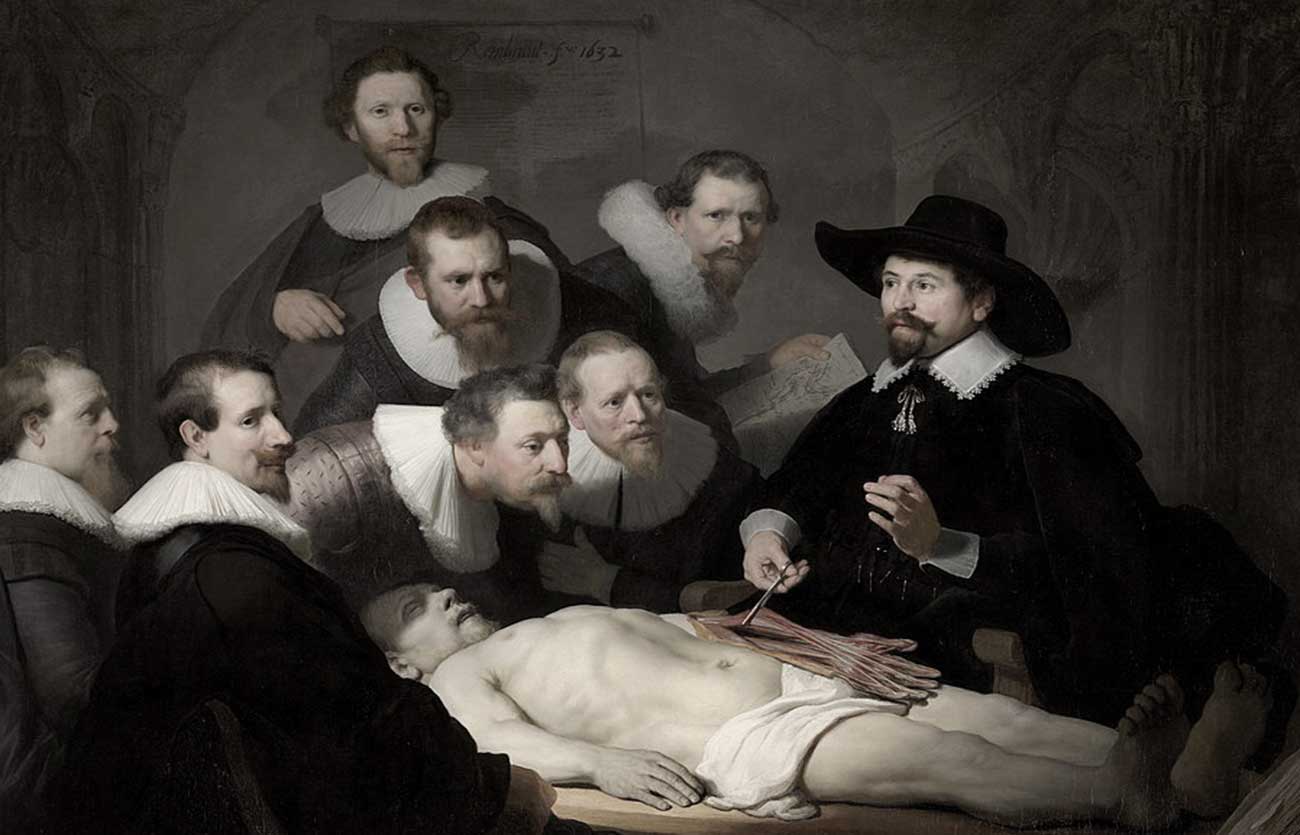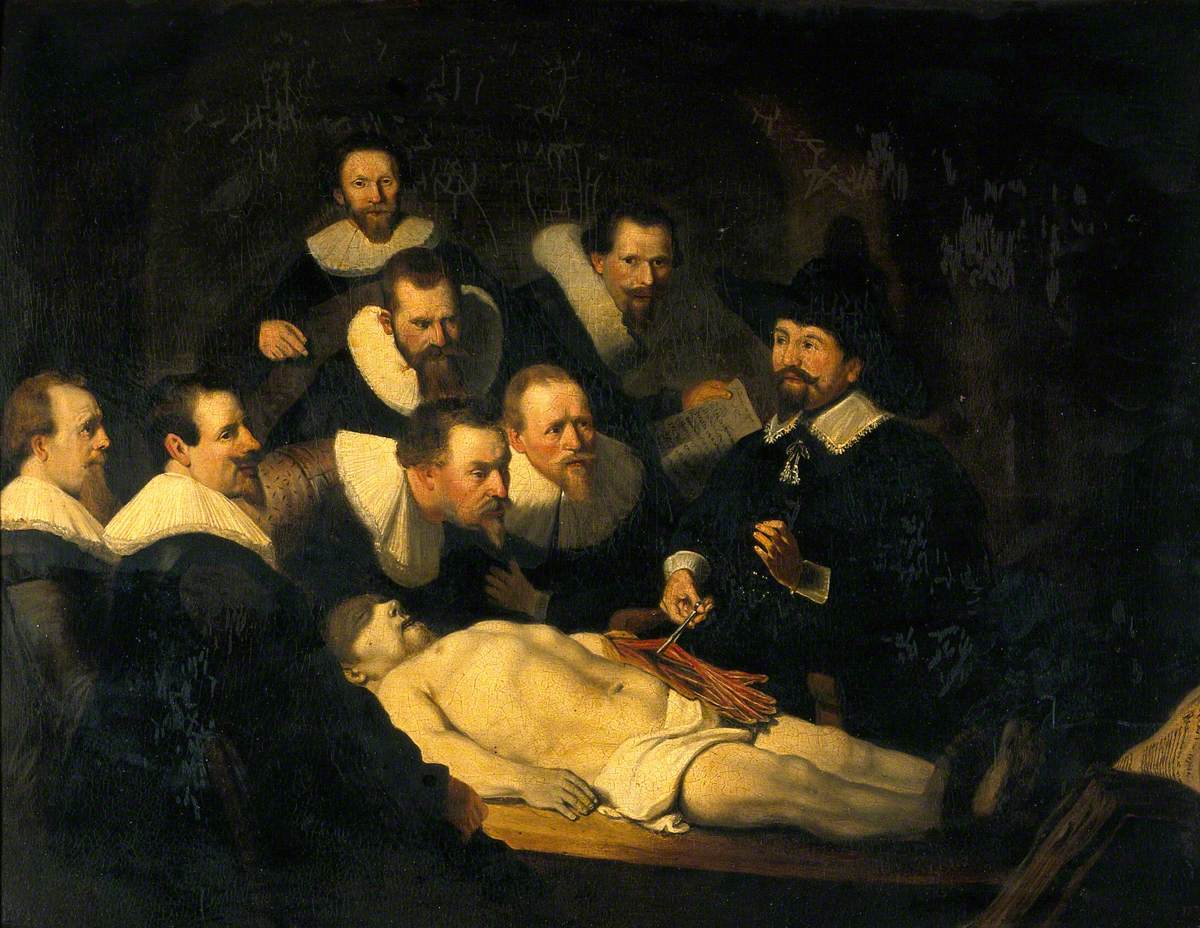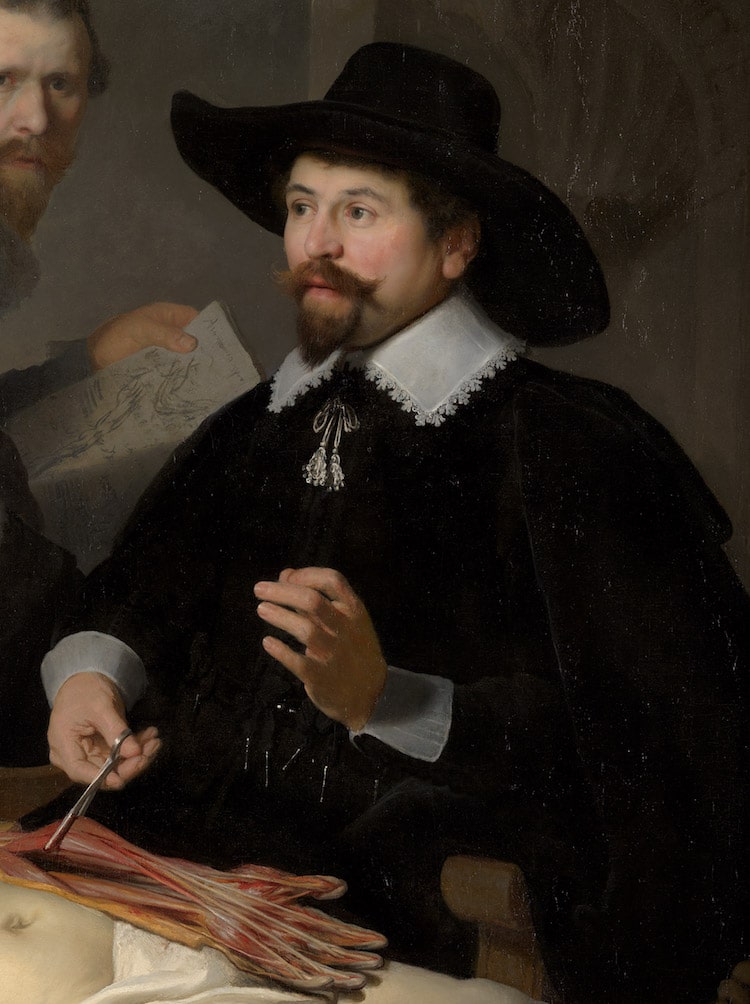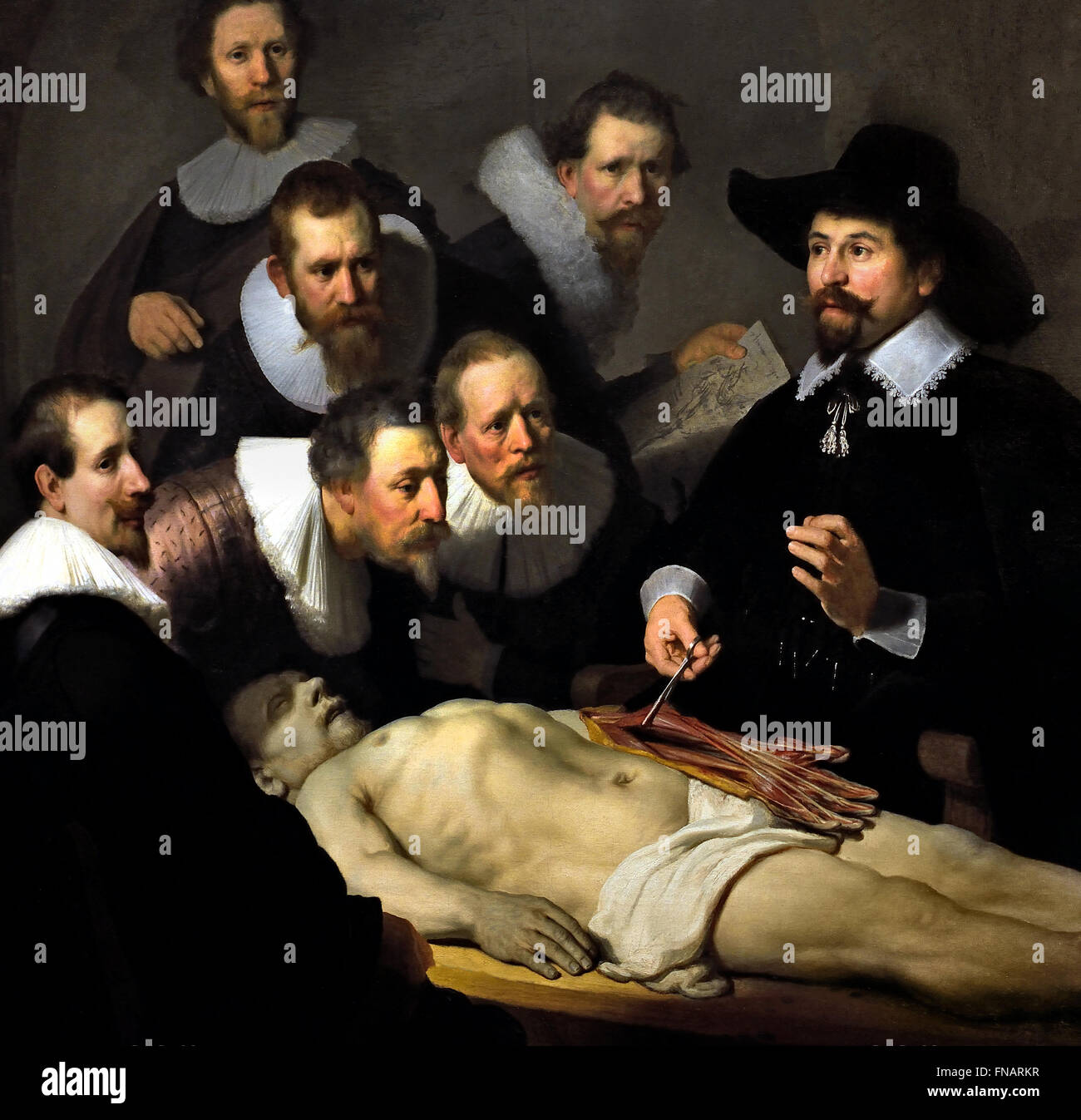
Dr Nicolaes Tulp’s anatomy lesson (1632) Rembrandt’s first group... Download Scientific Diagram
The Anatomy Lesson of Dr Nicolaes Tulp is one of Rembrandt's most impressive group portraits. The painting was made in 1632, shortly after the artist's move from the town of Leiden to Amsterdam. The surgeons' prestigious commission provided a unique opportunity to become known among art-lovers' circles in Amsterdam, and the painter did.

Lot No visible signature, a 19thC copy after the famous 'The anatomy lesson of Dr. Nicolaes
Berardo Di Matteo and his colleagues at the Rizzoli Orthopaedic Institute in Bologna, Italy have provided another outstanding contribution to "Art in Science" with their discussion of the story behind another iconic painting in the history of medicine, The Anatomy Lesson of Dr. Nicolaes Tulp by Rembrandt van Rijn.

REMBRANDT ve ANATOMİ DERSİ RESİMLERİ Hülya DÜZENLİ Abi
The Anatomy Lesson of Dr. Nicolaes Tulp was created in 1632 in the early age of Rembrandt's mastership as an artist and was one of Rembrandt's first major commissions and is representative of his later works. The oil painting depicts Dr. Nicolaes Tulp explaining the musculature of the arm to other medical professionals.

Arriba 96+ Foto La Lección De Anatomía Del Dr. Nicolaes Tulp Lleno
Rembrandt van Rijn, The Anatomy Lesson of Dr. Nicolaes Tulp, 1632, Mauritshuis, The Hague, Netherlands. Detail. Rembrandt painted this group portrait of seven surgeons and the physician Nicolaes Tulp in 1632. He was only 26 years old at that point. Nicolaes Tulp was a famous doctor, the head of the Guild of Surgeons.

The Anatomy Lesson of Dr Nicolaes Tulp by Rembrandt Anatomy lessons, Art teacher resources, Lesson
The Anatomy Lesson of Dr. Nicolaes Tulp Rembrandt Date: 1632 Style: Baroque Genre: genre painting Media: oil, canvas Location: Mauritshuis, Hague, Netherlands Dimensions: 216 x 169.5 cm Order Oil Painting reproduction Article Wikipedia article References

Cuándo y quién pintó Lección de anatomía del Dr. Nicolaes Tulp Sooluciona
The Anatomy Lesson of Dr Nicolaes Tulp was the turning point of Rembrandt's career. As a relatively unknown painter, it was a huge coup for the precocious young artist to obtain such a prestigious commission. But why was Rembrandt painting anatomy lessons? And who is Dr Nicolaes Tulp, the main subject of the portrait?

Kunst Fabriek DE BLOG DE ANATOMISCHE LES VAN DR. NICOLAES TULP
A quarter of a century later, Rembrandt was commissioned to paint a portrait of a dissection by Doctor Johan Deyman, Tulp's successor as Amsterdam's Chief Anatomist. Hung alongside The Anatomy Lesson of Dr Tulp, in the city's Anatomical Theatre, The Anatomy Lesson of Dr. Deyman (1656, Rijksmuseum) was later badly damaged by fire in 1723, and.

Rembrandt 'The Anatomy Lesson of Dr. Nicolaes Tulp’ 1632 Funny Paintings, Paintings Famous
Entitled The Anatomy Lesson of Dr. Nicolaes Tulp, this large group portrait is considered an early triumph for the 26-year-old Rembrandt. It not only exemplifies the style and techniques of the Dutch Golden Age but also demonstrates the artist's theatrical approach to a genre that was typically quite static. Here, we will take a close look at.

The Anatomy of Dr Nicolaes Tulp Art UK
Rembrandt, The Anatomy Lesson of Dr. Tulp (video) | Khan Academy Europe 1300 - 1800 Course: Europe 1300 - 1800 > Unit 9 Lesson 4: Dutch Republic Anthony van Dyck, Self-Portrait as Icarus with Daedalus Saenredam, Interior of Saint Bavo, Haarlem Hals, Singing Boy with Flute Hals, Malle Babbe Frans Hals, The Women Regents Willem Claesz.

Figure 3 from The anatomy lesson of Dr. Nicolaes Tulp by Rembrandt (1632) a comparison of the
Dr. Nicolaes Tulp (1593-1674) was a practicing Dutch surgeon and physician, a civic leader, mayor of Amsterdam, and an anatomist who was appointed Praelector in Anatomy to regularize public dissections, and he was also charged by the Surgeons' Guild to apprentice surgeons.

Momento confiar Refinería rembrandt anatomie dr deijman Lamer Caliza Mucho bien bueno
The Anatomy Lesson shows professor Tulp as he probes the anatomy of a cadaver's left arm with an instrument in his right hand, while, with his left hand, he demonstrates the movements of which.

The Anatomy Lesson of Dr. Nicolaes Tulp, as art print or hand painted oil.
2019-2020 Art Resource Guide 5 Introduction The fascination with sickness and human frailty transcends media, time, and space. It is a subject that can allow artists to express the concerns of the cultural moment or represent experiences that are not always visible to the naked eye. This resource guide explores eighteen works produced in Europe, North America, and Japan that deal in.

The Anatomy Lesson ( de anatomische les ) of Dr Nicolaes Tulp 1632 Rembrandt Harmenszoon van
Although several of Rembrandt's most well-known paintings are group portraits— The Anatomy Lesson of Dr. Tulp among others—his early education in Leiden, first at a Latin school and then later at the university, suggest that he was destined for a vocation other than art.

ViCTAR Screencapture The Anatomy Lesson of Dr Nicolaes Tulp YouTube
In this post, I take a closer look at The Anatomy Lesson of Dr. Nicolaes Tulp by Rembrandt. This is a masterful demonstration of composition and accuracy. It is also a change from the colorful impressionist landscapes which I seem to favor. In this post, I cover: Rembrandt, The Anatomy Lesson of Dr Nicolaes, 1632 Key

The Anatomy Lecture of Dr. Nicolaes Tulp (detail) 1632 Painting Rembrandt Harmenszoon Van Rijn
Dr. Nicolaes Tulp was appointed praelector (like a professor or lecturer) of the Amsterdam Anatomy Guild in 1628. One of the responsibilities of this position was to deliver a yearly public lecture on some aspect of human anatomy.

Lección De Anatomía Fotos e Imágenes de stock Alamy
The Anatomy Lesson of Dr. Nicolaes Tulp is a 1632 oil painting on canvas by Rembrandt housed in the Mauritshuis museum in The Hague, the Netherlands. It was originally created to be displayed by the Surgeons Guild in their meeting room. [1] The painting is regarded as one of Rembrandt's early masterpieces.